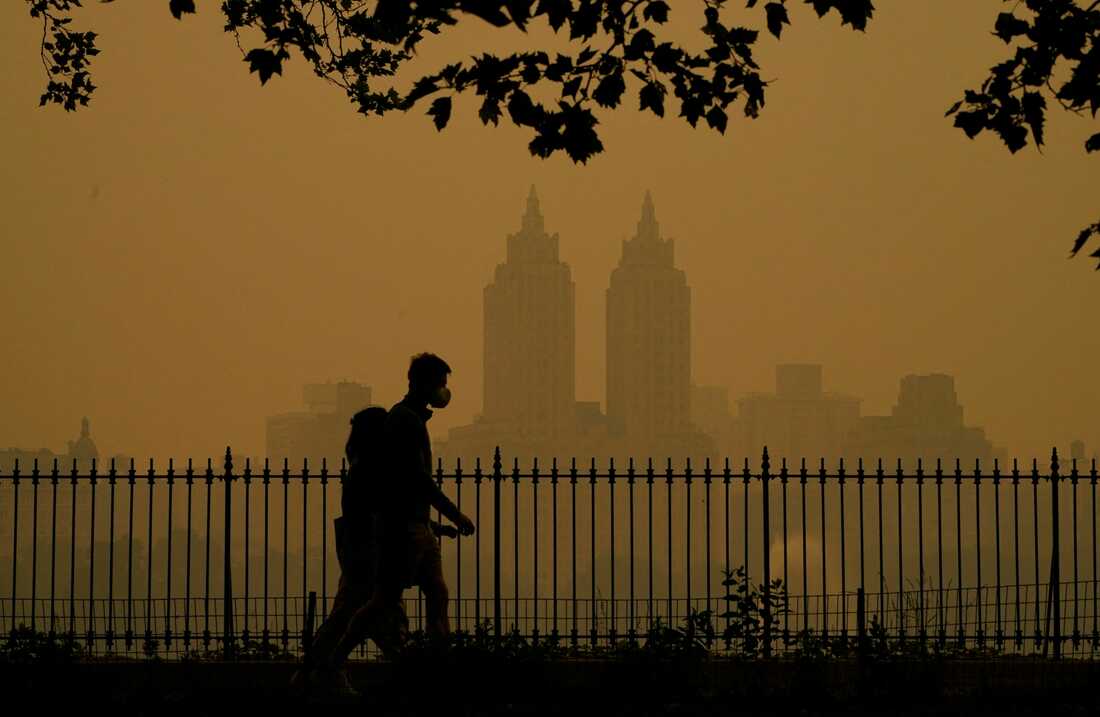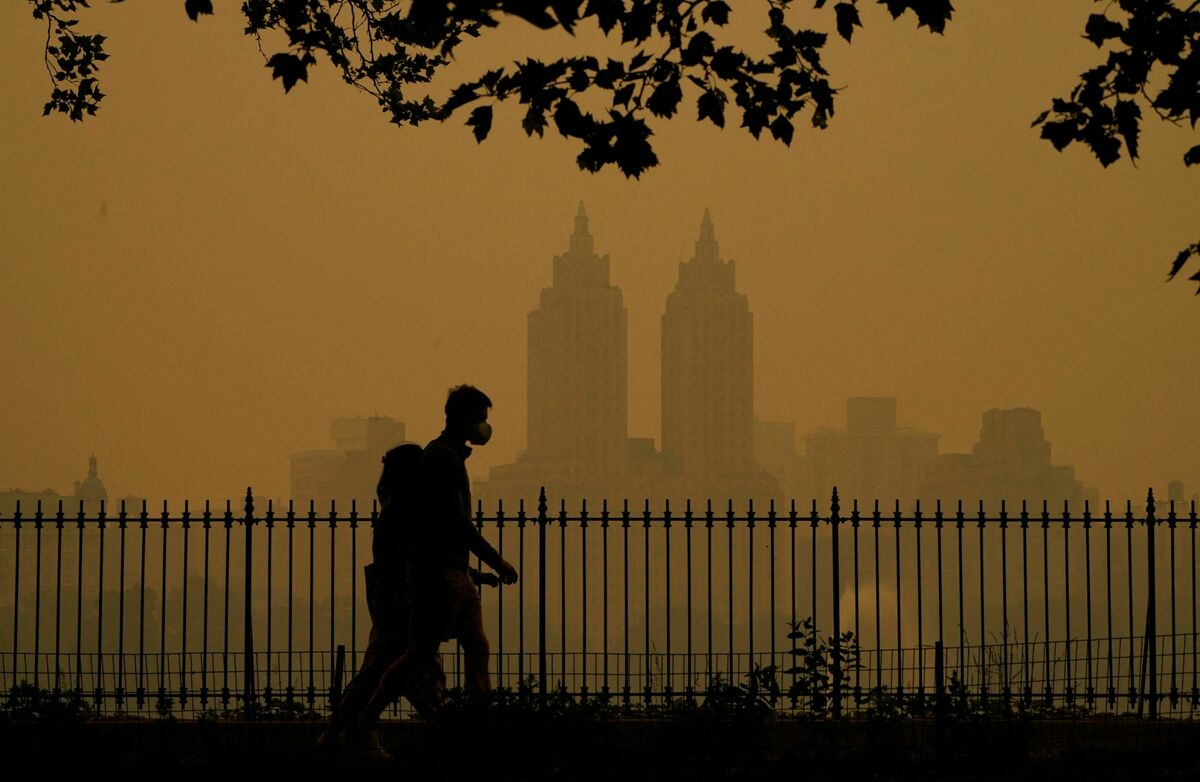[ad_1]

Smoky air is loaded with microscopic flakes of particulate make any difference that can get into the lungs and even into the blood stream.
Timothy A. Clary/AFP via Getty Pictures
conceal caption
toggle caption
Timothy A. Clary/AFP by using Getty Pictures

Smoky air is loaded with microscopic flakes of particulate issue that can get into the lungs and even into the blood stream.
Timothy A. Clary/AFP through Getty Illustrations or photos
Whilst a thick yellow haze has blanketed significantly of the Jap U.S. this 7 days, some of the poorest air excellent in the entire world has been in New York Town. Pulmonologist Dr. Ravi Kalhan, of Northwestern Drugs likened it to New Yorkers cigarette smoking a pack of cigarettes a working day.
The wellbeing dangers of extensive-expression cigarette smoking are effectively understood, but what are the potential risks of short-term exposure to wildfire smoke — like the smoke that is nonetheless drifting south from Canada’s wildfires?
“I consider that everybody has some degree of hazard when air air pollution stages are to this extent,” suggests Dr. Keith Brenner a pulmonary and significant care health care provider at Hackensack College Health care Center.
But it is people today with preexisting lung circumstances like asthma or COPD (continual obstructive pulmonary ailment) who are most at danger.
Smoky skies can bring about itchy eyes, sore throats, head aches and even a little nausea. But it truly is the high-quality particles – particulate issue that’s 2.5 microns or significantly less in diameter – that are the most important health and fitness hazard. These particles can get into your lungs, and for people today with lung conditions they can set off a flare up. “Worst case situation you may even have to be admitted to the medical center,” Brenner says.
Very poor air high-quality can also be a problem for individuals with cardiovascular illness.
Investigate by the Environmental Security Agency and others has observed exposure to particle air pollution will increase hospitalizations for serious cardiovascular occasions like heart failure, strokes, heart attacks and loss of life.
Expecting people and little ones – specially small children with bronchial asthma – are also at amplified chance of harm from exposure to wildfire smoke. Children breathe speedier and acquire in extra polluted air, claims Dr. Lisa Patel, a pediatrician at Stanford Medication Kid’s Health. “Young ones are additional susceptible to get started with due to the fact their airways are even more compact. So even a smaller sized volume of inflammation can hit a child more difficult as properly,” Patel suggests. This is specifically legitimate for small children beneath age 5.
Inhaling polluted air can also affect the advancement of the fetus. “So I think that expecting females ought to do all they can to avoid publicity on days when the degrees are so large,” Brenner states. And he points to quite a few studies that demonstrate hospitalization charges for small children with bronchial asthma flare-ups boost when air pollution ranges are large.
So what’s the best way to limit publicity to hazardous air pollution?
First. check out the air quality the place you are living by likely to the EPA web site airnow.gov, which has a coloration coded meter demonstrating the air excellent in your spot. If the air is rated unhealthy, the ideal suggestions is to remain inside as a great deal as attainable and continue to keep the doorways and windows shut.
If you have cracks beneath the doorways wherever the air is coming in, Linsey Marr, an aerosols pro at Virginia Tech, implies rolling up a towel to block it. If you have an air purifier, “operate it on superior so that you are filtering your indoor air as a great deal as probable,” Marr claims.
Air purifiers can be expensive, so if you really don’t have one, Patel implies, making one particular oneself. Get a HEPA filter “and attach it to a box fan and get about a 50% reduction in the air pollution indoors,” she states. And attempt to prevent nearly anything that can make the indoor air quality even worse. “If you have a gasoline stove, consider to keep away from using it,” Patel says. You should not vacuum or melt away candles simply because that will just incorporate additional particles to your indoor air.
And drink loads of h2o. The fluid keeps your eyes, nose and throat moist which can help ease irritation. Also, steer clear of exercising when the air is terrible. Workout makes you breathe more deeply, bringing any particles in the air deeper into your airways.
And finally, if you do go outdoors – mask up! “Just like with COVID, the most effective mask is heading to be a higher high-quality, effectively-fitting, what we phone a respirator mask, an N95 or KN95,” Marr suggests. Surgical masks or fabric masks are greater than almost nothing, but they never offer you great defense. N95 masks can filter out 95 % of smoke particles, if fitted adequately and dirty air isn’t going to leak close to the sides.
And you know the drill: Include your nose and your mouth.
[ad_2]
Resource backlink



